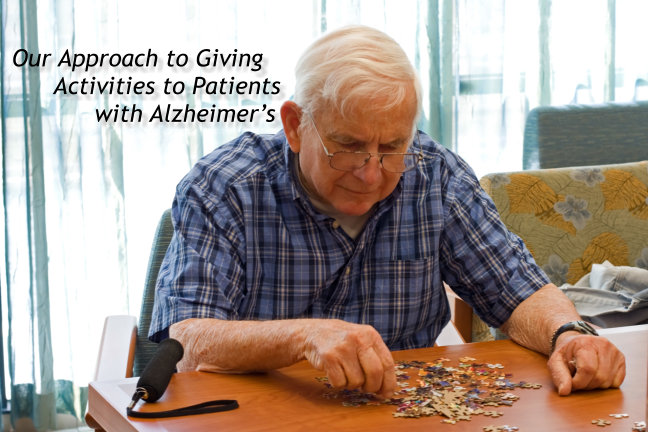
Patients suffering from Alzheimer’s disease may find daily living hard to come by thus giving them activities that they will indubitably enjoy can be difficult to do. How does Brighton Cornerstone Healthcare occupy their patients with activities?
The following are our secret to keep our patients with the said disorder busy:
- Providing help
People who have dementia do want to continue moving around and doing the things they like to do. Instead of stopping them because they care no longer capable of doing so, our caregivers assist them by any means possible.
These types of people only have the difficulty to organize, initiate, plan and complete a task successfully and are not incapable of moving around. We usually do the initiating of the activities and guide them when they seem to forget the purpose of what they are doing.
- Giving support and care
It may seem annoying to a regular person but if you’ve dementia, you would easily forget the things you have been doing. Thus, we give our patients the assistance by showing them how to carry out the activity. We make simple and steps that are easy to follow available to guide them to the completion of their tasks.
- Encouraging fun
It does not matter if the plates are properly put inside the dishwasher or if the bed is not arranged as it should be. All that matter to us is the fact that our patients are entertained and are having fun while doing these activities.
We frequently do activities together to encourage quality time with each other and in order to avoid depression among our elderly patients. In doing so, the patients will feel that he or she has done something useful and that we need them for the company and learning they contribute to us.
- Being flexible
Being a promoter of quality home health care in East North Street Madisonville KY enables us to understand what our clients truly want. If they become adamant in not doing prepared activities, we do not force them to do so. We know that there may be some factors that prevent them from accomplishing the activity and we cannot blame them for that. We do not want to traumatize and cause bad memories to our frail patients.
- Giving assistance to complete the complicated parts of the task
The tasks you may find easy may not be effortless to patients with Alzheimer’s disease. To respond to this, we give them the assistance they need and request them to continue when easy tasks are available for them.
- Stressing the importance of the help given
Everyone wants to feel useful and this feeling is no stranger to seniors with Alzheimer’s. Every time they have completed a task, we always praise them for doing so and we emphasize the impact that they have contributed as they helped their caregivers with an activity or a chore.